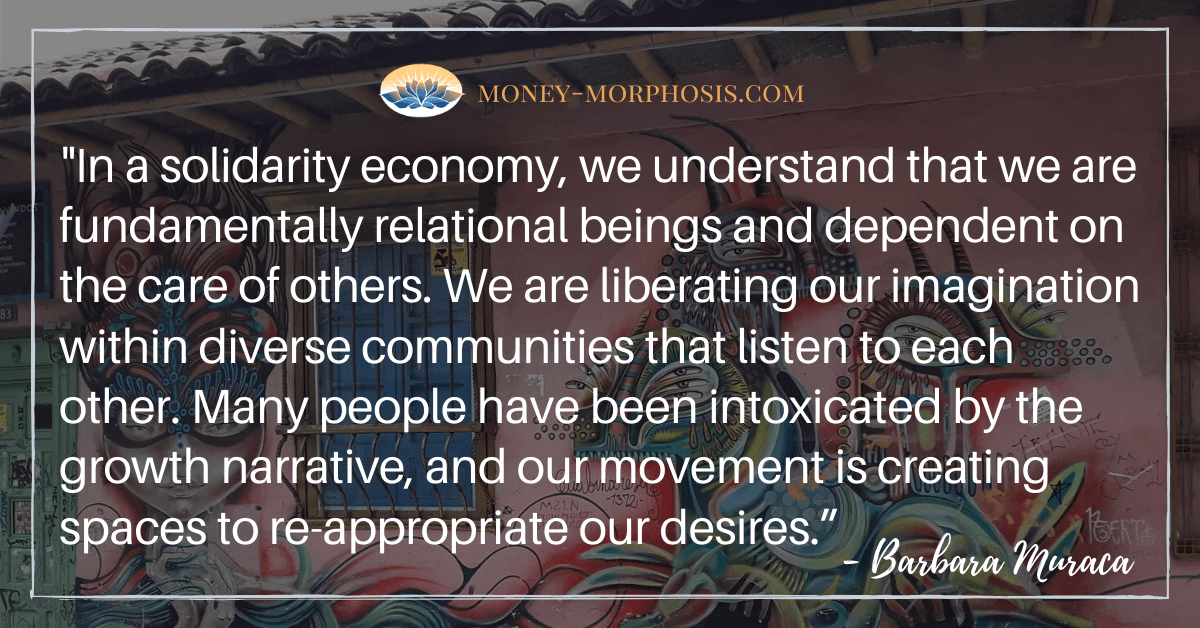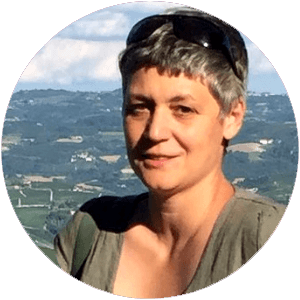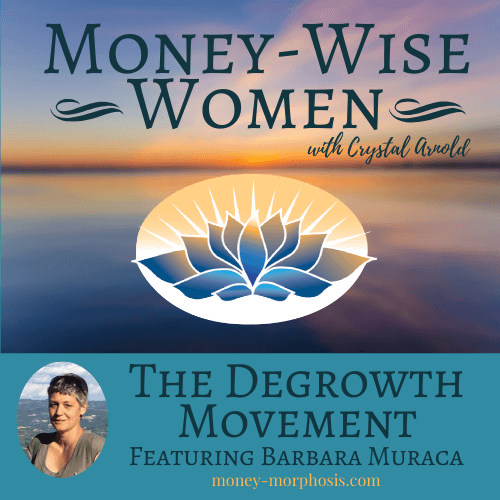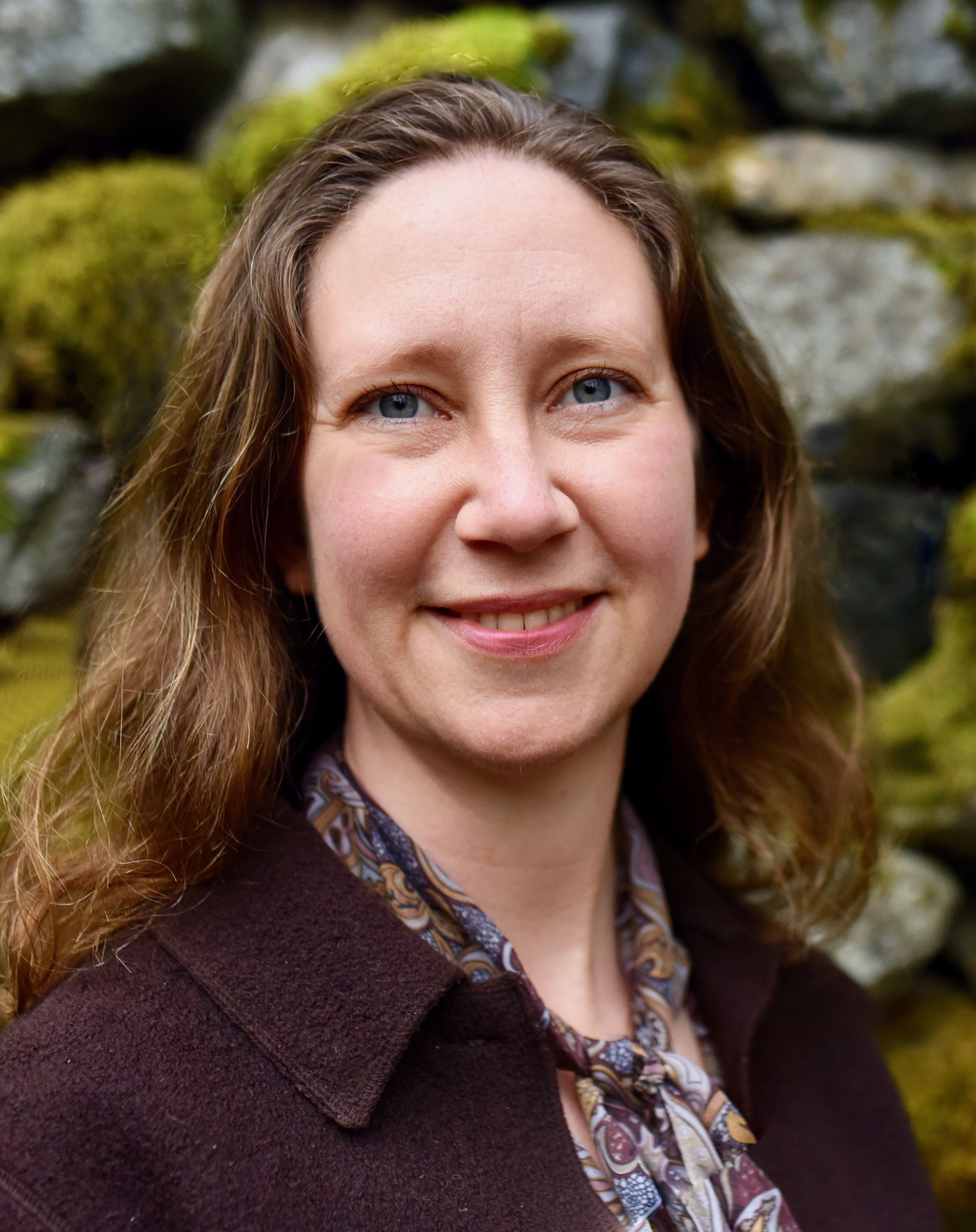It’s getting clearer. The extractive economy is exhausting us all.
The American economy has been growing steadily in the last decade, but despite this boom millions of families cannot afford the basic necessities of life. Homelessness, medical bankruptcies, student loan debt, and childcare costs weigh heavily on struggling families.
What if our measure of success shifted from economic growth to the well-being of people and planet?
Global leaders from diverse fields are exploring this, including “Money-Wise Women” guest Barbara Muraca. She is an assistant professor of environmental philosophy at the University of Oregon, and has been a leader in the degrowth movement for decades.
Barbara says, “Degrowth is about more than economic shrinking. It is not simply about reversing growth or using other indicators; it’s about changing the conditions that pressure society to continue growing to function. Degrowth is a project of liberation, it’s not just ‘less of the same.’”
People are questioning the imperative of economic growth, and there is a groundswell of shifting values. Barbara describes our current economy as a crazy bicycle that must constantly accelerate or it will fall. Degrowth is a bicycle with a different frame with respect to ownership; common space and open source are the scaffolding of a new economy. This bicycle can continue moving, but does not have to accelerate.
Across the globe, examples of these models are flourishing, providing proof that a better world is possible. According to the research of the Post Growth Institute, regenerative organizational structures include consumer cooperatives, government and nonprofit enterprises, and industrial foundations. These account for almost 20 percent of global GDP. What we need now is to build on what’s working. It’s time to rewrite the rules from the ground up, to be ready to meet new needs and build something better as the current growth-based mandate falters.
A post-growth mindset encourages us to shop at local businesses, so that money circulates and enriches the whole community, and to repair instead of replace, saving money and resources while supporting local craftspeople. Empowered with a fresh sense of belonging and inherent value, people in a post-growth world build community by sharing purchases. In doing all this, we advance an economy founded on well-being, efficiency, and community.

Some progressive economists want to account for the value of nature and redefine what wealth and success mean, beyond what can be measured with dollars and numbers. Barbara explains why we need a critical examination of the monetary valuation of ecosystem services.
Our economy is a layer of the natural living system, rather than outside of it. People are rediscovering their connection to the natural world and to each other, in turn empowering individuals and communities to shed the isolation imposed by the foundations of capitalism self-interested competition and conspicuous consumerism.
Barbara says, “In a solidarity economy, we understand that we are fundamentally relational beings and dependent on the care of others. We are liberating our imagination within diverse communities that listen to each other. Many people have been intoxicated by the growth narrative, and our movement is creating spaces to re-appropriate our desires.”
Listen to this inspiring episode of “Money-Wise Women” and change the way you look at what is possible beyond endless growth. We are recognize the interconnectedness of our dynamic living system, acknowledge its limits, and nurture its regeneration. If we trust our inner wisdom and understand the forces working to distract and belittle us, we can connect with and strengthen our community to realize our vast collective power.

Barbara Muraca
Barbara Muraca is an Italian who has lived more than 20 years in Germany and since 2014 in Oregon. She is assistant professor of environmental philosophy at the University of Oregon, and is passionate about environmental justice, sustainability, and the conditions for a good life for all beyond the imperative of growth, performance pressure, and competition. Her research focuses on human-nature relationships, justice and care, and degrowth. She is a national expert and lead author for the Intergovernmental Science-Policy Platform on Biodiversity and Ecosystem Services (IPBES) assessment on multiple values and valuation of nature. Learn more about the degrowth movement here: https://www.degrowth.info/en/


